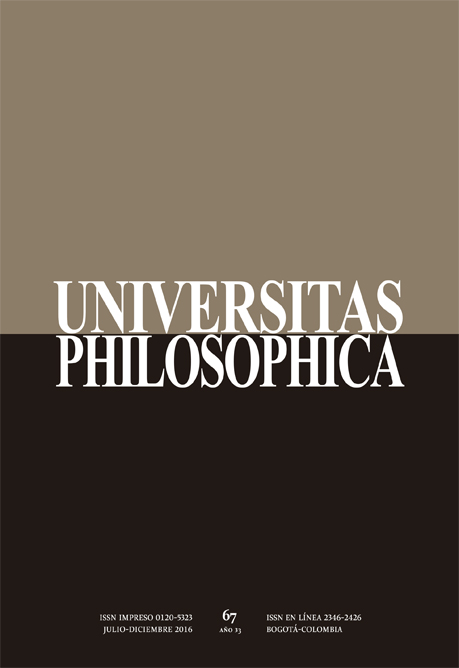Abstract
This is the first Spanish translation of the three first questions, of Scotus’s commentary on Aristotle’s Categories. The Franciscan distinguishes the subject matter of the Aristotelian treatise under the logical concept of «category», grounding the unity of their treatment as a scientific object on the unity of this concept. To do so, Scotus distinguishes the properly logic study of categories, from its linguistic treatment (which grounds in their utterance) and from the metaphysician’s study (where its real diversity is considered), al least in this first moment of his thought.
This journal is registered under a Creative Commons Attribution 4.0 International Public License. Thus, this work may be reproduced, distributed, and publicly shared in digital format, as long as the names of the authors and Pontificia Universidad Javeriana are acknowledged. Others are allowed to quote, adapt, transform, auto-archive, republish, and create based on this material, for any purpose (even commercial ones), provided the authorship is duly acknowledged, a link to the original work is provided, and it is specified if changes have been made. Pontificia Universidad Javeriana does not hold the rights of published works and the authors are solely responsible for the contents of their works; they keep the moral, intellectual, privacy, and publicity rights.
Approving the intervention of the work (review, copy-editing, translation, layout) and the following outreach, are granted through an use license and not through an assignment of rights. This means the journal and Pontificia Universidad Javeriana cannot be held responsible for any ethical malpractice by the authors. As a consequence of the protection granted by the use license, the journal is not required to publish recantations or modify information already published, unless the errata stems from the editorial management process. Publishing contents in this journal does not generate royalties for contributors.


